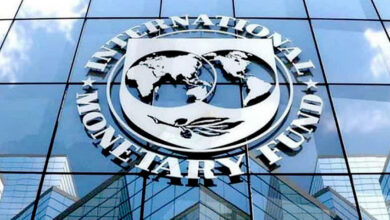Under India’s G20 Presidency, Global Business Coalition Members call for global action to mitigate the effects of disasters

New York. The Global Business Coalition (GBC) calls upon the G20 Leaders and provides recommendations to take action for developing multi-sector solutions to implement the best available risk reduction, mitigation and response policies and direct much-needed resources to improve disaster resilience.
In the wake of the tragic loss of lives and significant economic impacts caused by the 2023 earthquake in Türkiye and Syria, the Global Business Coalition calls on all governments to use G20 under India’s presidency to implement the best available risk reduction, mitigation and response policies and direct much-needed resources to improve disaster resilience. These challenges are increasing and must be met with a multisector approach to avoid the loss of life in communities around the world.
As disasters of all kinds wreak their devastation locally, the interconnectedness of systems and economies are evident in their effects globally. Coordinated investment in resilience is essential of G20 members, and India recognized this critical need early and set up the Disaster Risk Reduction Working Group scheduled to meet on April 30.
The Global Business Coalition welcomes G20 India’s plans to develop a platform for academics and practitioners engaged in disaster risk reduction in G20 countries. Business expertise is essential to this multilateral work. As threats and hazards are increasing the pace of disasters, the business community must be a partner of government in reducing disaster impacts by investing in adaptive capacity enabling resilient communities and systems coping with these increasing challenges. The costs are unsustainable.
The combined estimated annual average loss in G20 is $218 billion or 9 per cent of average annual investment in infrastructure. According to an early World Bank assessment of damages in Türkiye the direct cost from the earthquakes are at $34.2 billion (equivalent to 4 per cent of Türkiye’s 2021 GDP). The business community calls on the G20 to focus on global coverage of early warning systems, identify specific damage and loss reduction targets in key infrastructure across economic sectors, and clear, capable authorities for rapid response.
In addition to the devastating human toll, disaster risks can cause long-term economic crises and systemic financial risks, therefore resilience can shape economic well-being. When disasters like the earthquakes in Türkiye and Syria occur, they have the potential to trigger a domino effect of impacts across sectors destabilizing society including infrastructure, housing, health care systems, agriculture, supply chains, education, livelihood, and food security. Disasters can also increase fragility, fracturing economies and communities, increasing inequalities and existing vulnerabilities, and hindering innovations such as the transition to a green economic development paradigm.
The earthquakes make the choice clear and consequences extremely stark – disaster preparedness, capacity for adaptation, and actions across sectors is a driving human, economic, and geo-political imperative for building resilience across all sectors. The developing and least developed countries are the most vulnerable to disasters and offer the best opportunities to demonstrate the effectiveness of investing in resilience to save lives and support economies. In this respect, OECD Compendium of Policy Good Practices for Quality Infrastructure Investment as well as G20 Principles for Quality Infrastructure Investment underline key elements for resilient infrastructures.
The benefits of investing in disaster risk reduction and the urgent need for increasing its financing have been highlighted and brought to the agenda of G20 Italy by the United Nations Office for Disaster Risk Reduction (UNDRR). In its paper, the UNDRRR supports accelerating efforts in disaster risk reduction to achieve inclusive sustainable development. The paper underlines that global annual investments of only $ 6 billion in appropriate disaster risk management strategies could generate benefits of $360 billion or an equivalent of more than a 20 per cent reduction in new and additional expected annual losses. Moreover, according to a World Bank report published in 2019, the net benefits of investing in resilient infrastructure in low- and middle-income countries (LMICs) could be $4.2 trillion over the lifetime of new infrastructure. G20 adopted Principles of Quality Infrastructure Investment which recognized the need for disaster risk management plans to ensure long-term adaptability and build the resilience of infrastructure but focuses almost exclusively on human-made risks.





